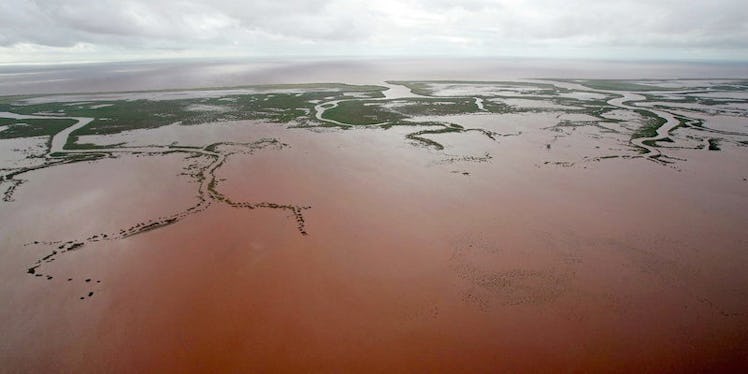
Climate Change May Have Made This Adorable Animal Go Extinct
The Bramble Cay melomys is likely the first mammal to go extinct because of climate change, according to National Geographic.
The animal was a small rodent that only lived in a small island -- called Bramble Cay -- in the eastern Torres Strait of the Great Barrier Reef in Australia.
The rodents were first seen there by Europeans in 1845 and last seen by a fisherman in 2009. But, scientists were unable to capture one in late 2014, leading them to believe the rodent is extinct.
The livable part of the island has shrunk over the years. The part of the island above high tide shrunk from 9.8 acres to 6.2 acres from 1998 to now. Vegetation is also shrinking, and the rodents lost a lot of their habitat.
A team of scientists reported,
For low-lying islands like Bramble Cay, the destructive effects of extreme water levels resulting from severe meteorological events are compounded by the impacts from anthropogenic climate change-driven sea-level rise.
In other words, rising sea levels caused by human-created climate change hurt the Bramble Cay melomys.
Luke Leung, a scientist from the University of Queensland who helped write the report, told The New York Times,
The key factor responsible for the death of the Bramble Cay melomys is almost certainly high tides and surging seawater, which has traveled inland across the island... This is the first documented extinction of a mammal because of climate change.
This should serve as a sign that we need to take climate change seriously and do something about it if we all want other species around the world to continue thriving and surviving.
Citations: First Mammal Species Goes Extinct Due to Climate Change (National Geographic), Australian Rodent Is First Mammal Made Extinct by Human-Driven Climate Change, Scientists Say (The New York Times), Confirmation of the extinction of the Bramble Cay melomys Melomys rubicola on Bramble Cay, Torres Strait: results and conclusions from a comprehensive survey in August–September 2014 (University of Queensland)